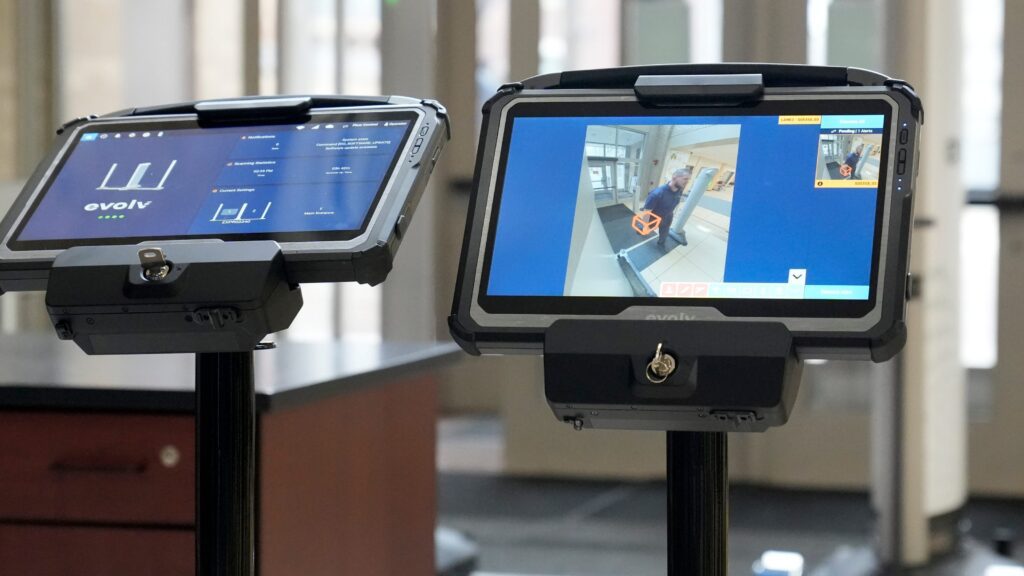FTC Settles with Evolv Technology Over AI-Driven Security Claims in Columbus Schools
The Federal Trade Commission (FTC) has reached a significant settlement with Evolv Technology, a Massachusetts-based company known for providing AI-powered weapons screening devices to Columbus City Schools and various school districts in the region. The deal, announced on November 26, addresses allegations that Evolv made misleading claims regarding the capabilities of its cutting-edge security technology.
The Heart of the Matter
According to FTC findings, Evolv’s Express scanners failed to reliably distinguish between harmful weapons and benign personal items in educational environments. Reports indicated that the devices flagged everyday objects—like laptops, water bottles, and binders—while overlooking actual threats, such as a large knife used in an October 2022 stabbing incident at a Columbus school. In response to the alarming failure, school officials were compelled to adjust the scanners’ sensitivity, which then led to a staggering 50% false alarm rate.
A Clouded Track Record
Evolv Technology requires scrutiny, particularly since Columbus City Schools, the state’s largest district, has invested over $3 million in a four-year contract to lease 20 of these warning systems for all high schools. Additionally, Evolv’s devices are utilized at major venues like Lower.com Stadium and the Columbus Zoo, raising concerns about public safety beyond educational settings.
What the Settlement Entails
Under the terms of the settlement, Evolv is prohibited from making any unsupported claims about its products’ effectiveness in detecting weapons. Furthermore, K-12 schools that entered into contracts with Evolv between April 1, 2022, and June 30, 2023, will have the opportunity to opt-out of their agreements. Given that Columbus City Schools signed their contract in 2023, the district may consider this cancellation option.
Evolv’s advertisements previously suggested that their AI technology provides superior accuracy, efficiency, and cost-effectiveness compared to traditional metal detectors. However, the FTC emphasizes the importance of backing these claims with reliable data, especially when children’s safety is at stake. Samuel Levine, Director of the Bureau of Consumer Protection at the FTC, has explicitly warned that misleading marketing about technology will not be tolerated.
Evolv’s Response
In a statement following the announcement, Evolv Technology’s interim President, Mike Ellenbogen, noted that the company "worked collaboratively" with the FTC and expressed satisfaction that the inquiry centered on past marketing language rather than the core efficacy of their technology. Ellenbogen reaffirmed the company’s commitment to community safety, insisting that their solutions can still be valuable assets in security contexts.
The Bigger Picture
This episode reflects a broader discourse about trust in technology, especially with the influx of AI in public safety applications. Local communities, such as those in Columbus, are rightfully wary when innovative yet untested solutions enter schools and public spaces. As AI technology rapidly evolves, ensuring transparent and accurate claims is vital to fostering confidence among users and stakeholders.
Conclusion
The Evolv Technology settlement spotlights a pressing need for accountability in the claims surrounding AI security systems. As more educational institutions adopt these advanced tools, it’s essential to prioritize genuine safety over flashy promises. While Evolv faces scrutiny now, this settlement serves as a critical reminder for all tech companies to ensure their products deliver on their claims—an essential element in protecting our children and communities.
The AI Buzz Hub team is excited to see where these breakthroughs take us. Want to stay in the loop on all things AI? Subscribe to our newsletter or share this article with your fellow enthusiasts.




